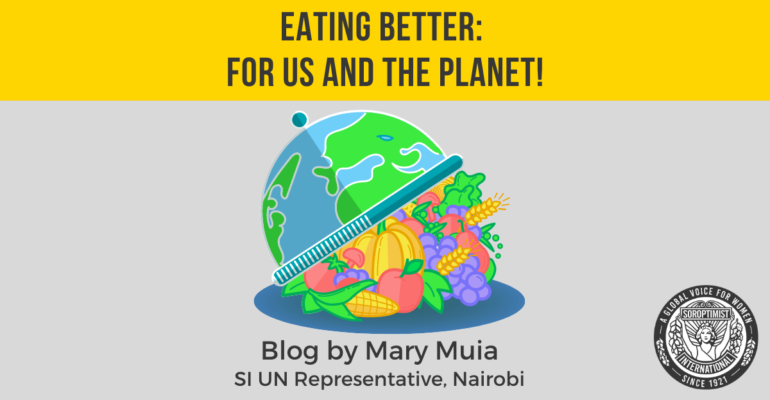SI UN Representative, Mary Muia, explains why food will be a hot topic at this year’s United Nations Environment Assembly.
“Food production, consumption, and waste, and how they impact the environment, will be a key topic of discussion at this year’s United Nations Environmental Assembly (UNEA-5), taking place online on 22-23 February 2021.
Global estimates suggest that roughly one-third of food produced for human consumption is lost or wasted every year. Those 1.3 billion tons of fruits, vegetables, grains, and roots are lost through spillage or spoilage in the harvest-to-market chain, or to spoilage and discard once products hit retailers and, eventually, consumers.
In a world where malnutrition is a contributing factor to roughly 45% of deaths of children under age five in developing countries, and where consumption of highly processed foods is pushing obesity rates ever higher, remaining accountable to those New Year resolutions isn’t just personal – they’re critical for humanity. They are also critical for the survival of the planet.
UNEP and partners are developing the world’s most comprehensive data analysis and modelling on food waste, which will be launched at the Assembly. Titled the ‘Food Waste Index’, the document will be released at UNEA-5. It offers new estimates of food waste at household, retail and food service sectors at country level, and provides a methodology that enables countries to measure and track progress on Sustainable Development Goal 12.3, which aims to halve retail and consumer food waste and reduce food loss by 2030.
At UNEA-5, the virtual convening of representatives of UN member states, the private sector, civil society, scientists and other leaders will be an opportunity to share and adopt best practices for transforming food systems. Momentum toward sustainable food production and consumption that is generated by the Assembly will be built upon going forward in 2021, with the historic first-ever UN Food Systems Summit.
“The COVID-19 pandemic revealed the obstacles and blockages in our global food system. We have a timely opportunity to build back better and redesign the way we grow, harvest, sell and eat the bounty of nature’s production,” said Clementine O’Connor, from UNEP’s Sustainable Food Systems Programme.
Transforming our food systems will not only help restore biodiversity and habitat but can also strengthen market opportunities for smallholder farmers – many of whom are women on the road to economic self-sufficiency through sustainable production of fruit and vegetables.”
Click HERE to find out more about how the UN is addressing the relationship between food systems and the environment.

